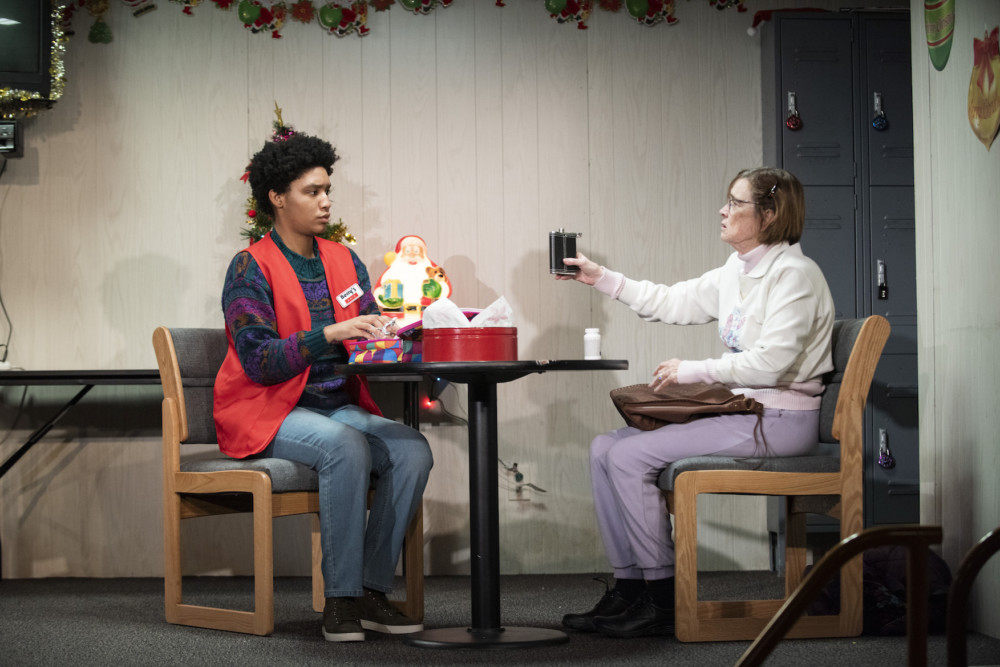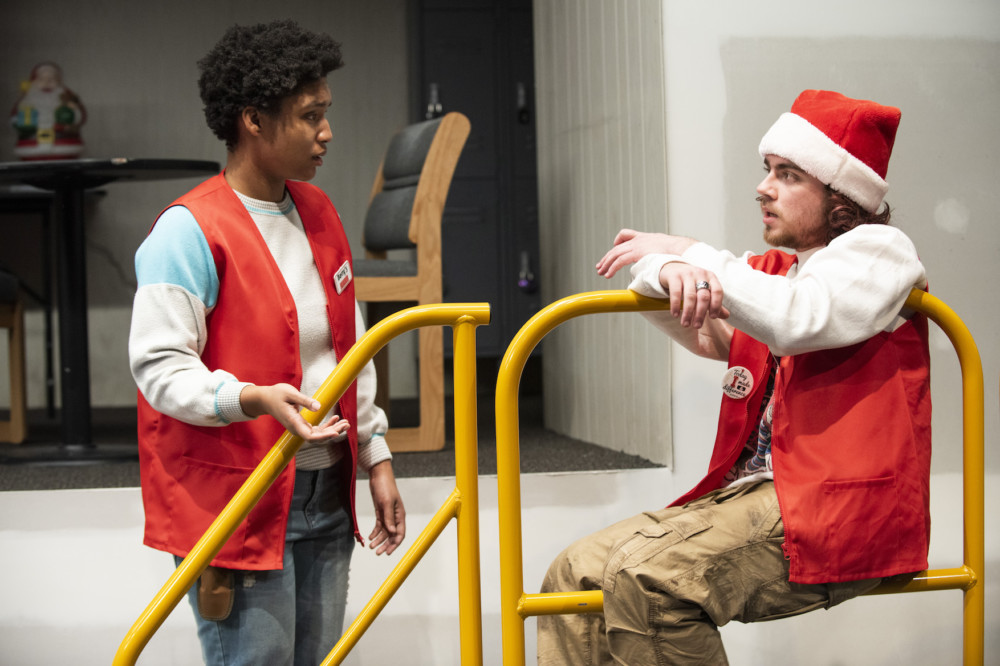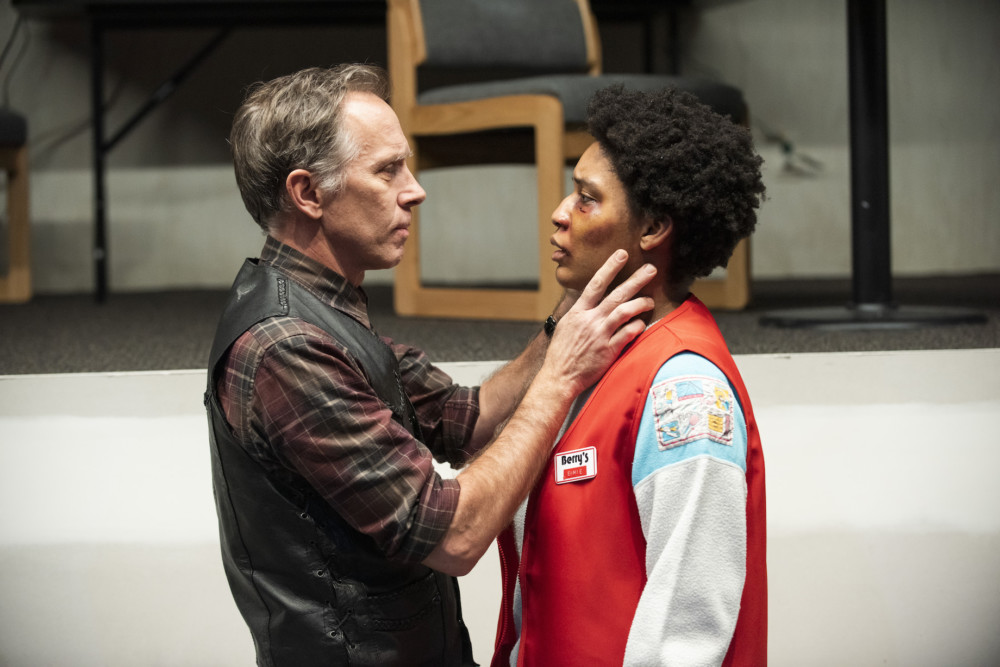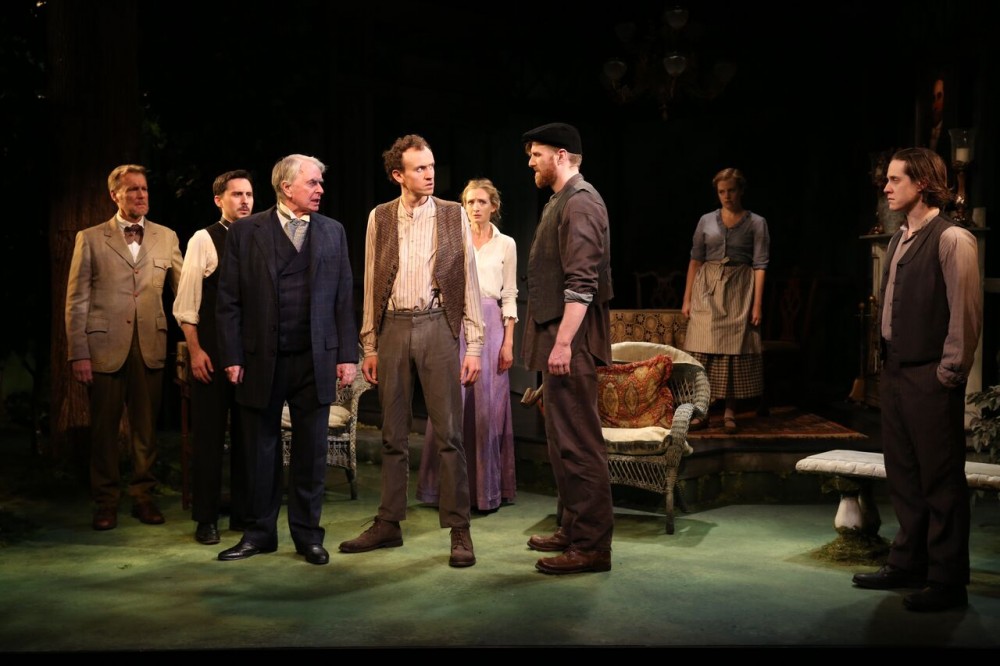
James Murtaugh, Danielle Skraastad, Jules Latimer, Ann McDonough (Wendy)
By Brian Scott Lipton
Thinking about taking a mid-winter romantic getaway? Well, sorry to disappoint you, but heading down to Paris, now at the Atlantic Stage 2, is not the answer. You see, the Paris in Eboni Booth’s darkly comic play has no Eiffel Tower nor Moulin Rouge; it’s a small town in Vermont (circa 1995) where a night out at the local bar drinking vodka and singing karaoke appears to be the pinnacle of entertainment.
Moreover, the work is set entirely at Berry’s, a cheesy local department store (whose break room and warehouse are perfectly rendered by David Zinn), and its employees are one big unhappy family, due in large part to sub-par wages, bosses who dock pay for even one extra minute spent in the toilet, and a corporation that is constantly leaving people’s hours off their paychecks, from which these folks need every penny. As an indictment of “big business”—something on the minds of many folks in this election year—the play succeeds in its mission, much in the way such other recent works as Skeleton Crew and Fulfillment Center did as well.


Jules Latimer, Ann McDonough
To its credit, Paris also introduces us to an array of richly-drawn and well-acted characters, from well-meaning veteran employee Wendy (the hilarious Ann McDonough) and her financially desperate husband Dev (James Murtaugh) to deeply embittered mother of four Maxine (the excellent Danielle Skraastad) to would-be white rapper and basic nice guy Logan (a truly believable Christopher Dylan White) to former-employee-turned boss Gar (Eddie K. Robinson), who still isn’t satisfied with his earnings and ends up involved in a dangerous side hustle with the menacing Carlyle (a creepy Bruce McKenzie). Their interactions are consistently believable, often quite funny and sometimes downright heartbreaking.
The play’s main problem, however, is that none of these people are its central character. That distinction belongs, instead, to Emmie (newcomer Jules Latimer) who ends up being both too much of an enigma and too reactive to fully engage our attention. Newly hired at Berry’s as the play begins, the 22-year-old, African-American Emmie says she grew up in Paris and returned a couple of years back to take care of her now-dead mother, but none of the other people claim to have ever seen her and she seems to have no friends or relations in town.
As Emmie’s fellow employees all make somewhat racist comments, some directly to her, I believe Booth is trying to make the very important point that African-Americans are often treated as invisible beings in America, especially in a white-dominated state like Vermont. That’s as timely today as it was 25 years ago.


Jules Latimer, Christopher Dylan White
Unfortunately, in addition to the issue of the role of Emmie being underwritten, the entire play would be more effective with another (and maybe more experienced) actress in the lead. While I think Latimer tries to play Emmie as an introvert—and an intelligent one at that—she often comes off as slow-witted or possibly mentally challenged. It even seems to take her an endless amount of time to make a small pot of coffee. (Unfortunately, this moment is just one of director Knud Adams’ unfortunate staging choices that also undercut the work.)
Still, Emmie deserves our sympathy, so the big question still lingers at the play’s end: Why doesn’t she just buy a bus ticket to somewhere—anywhere—else? If anyone needs to get away from her surroundings, it’s not you . . . it’s Emmie.
Paris. Through February 16 at the Atlantic Stage 2 (330 West 16th Street, between Eighth and Ninth Avenues). www.atlantictheater.org
Photos: Ahron R. Foster






















